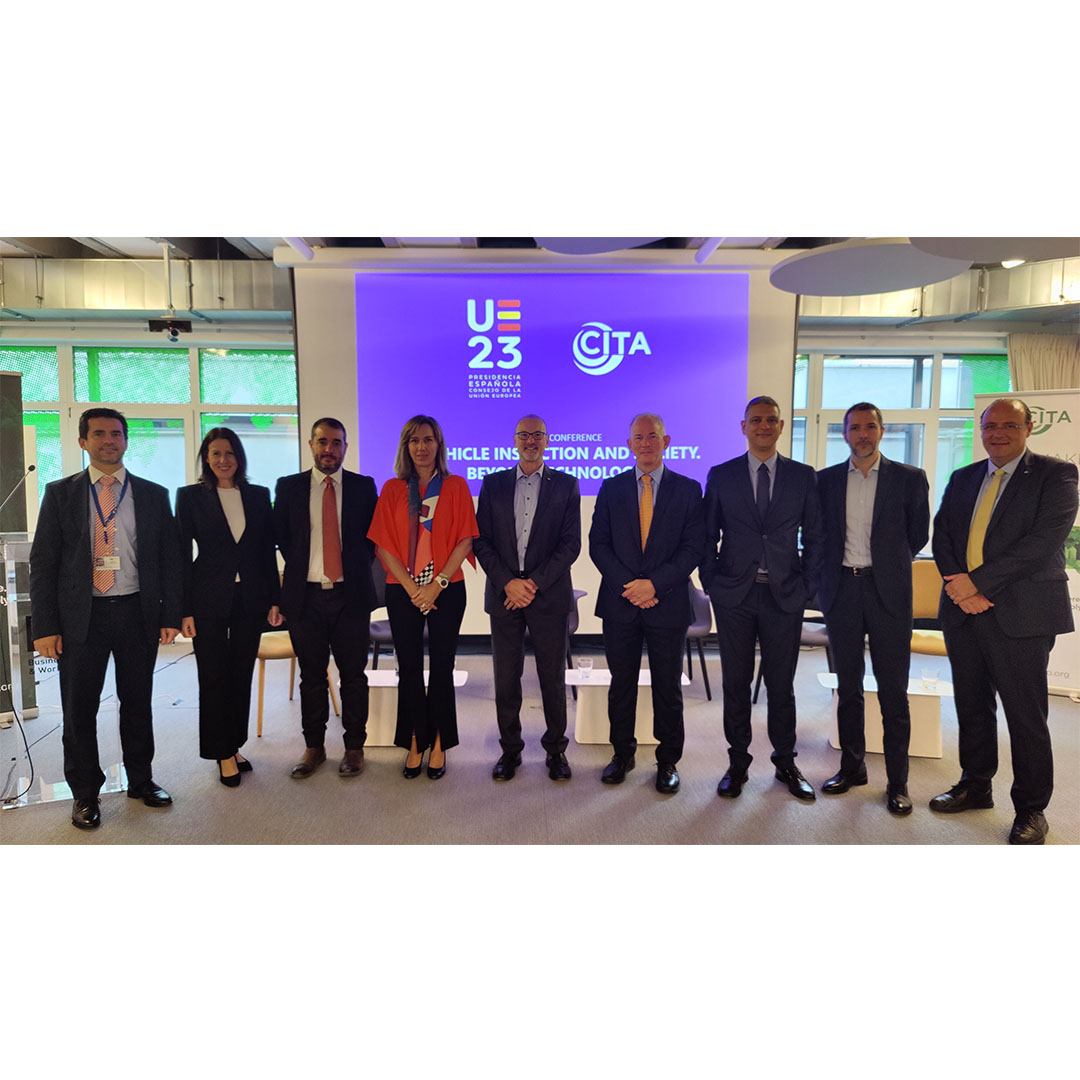Vehicle Inspection and Society: Beyond Technology.
Yesterday in Brussels, a significant gathering of PTI experts, governmental officials, and industry stakeholders convened for a hybrid-conference entitled “Vehicle Inspection and Society: Beyond Technology.”
Jointly hosted by CITA and the Spanish Presidency of the Council of the EU, this event explored the multifaceted dimensions of vehicle inspection, pushing beyond just the technological considerations to unravel its societal and environmental significance. In fact, this collaboration demonstrated the growing importance of vehicle inspections, not only in terms of technological advancements but also its broader implications for society.
Key players from various facets of the industry graced the event, including Mr. Gerhard MÜLLER, the CITA President, and María José MUÑOZ MARTÍNEZ, the Director General for Industry and SME Ministry of Industry, Trade and Tourism from Spain.
The event was a success thanks also to the active participation of Guillermo MAGAZ PILAR, Managing Director of AECA-ITV; Sergio OLIETE JOSA, Head of Unit, Transport & Urban Development from DG INTPA – EU Commission; Ricardo SUÁREZ BERTOA, Scientific Officer at the Joint Research Centre (JRC) – EU Commission; Victor SALVACHÚA BARCELÓ, Vice President – New Technologies Development from APPLUS+; Macarena FERNÁNDEZ RIVERA, Technical and Operational Director from VEIASA; and Eugenio FERNÁNDEZ CÁCERES, Inspection Site Manager from ITEVELESA.
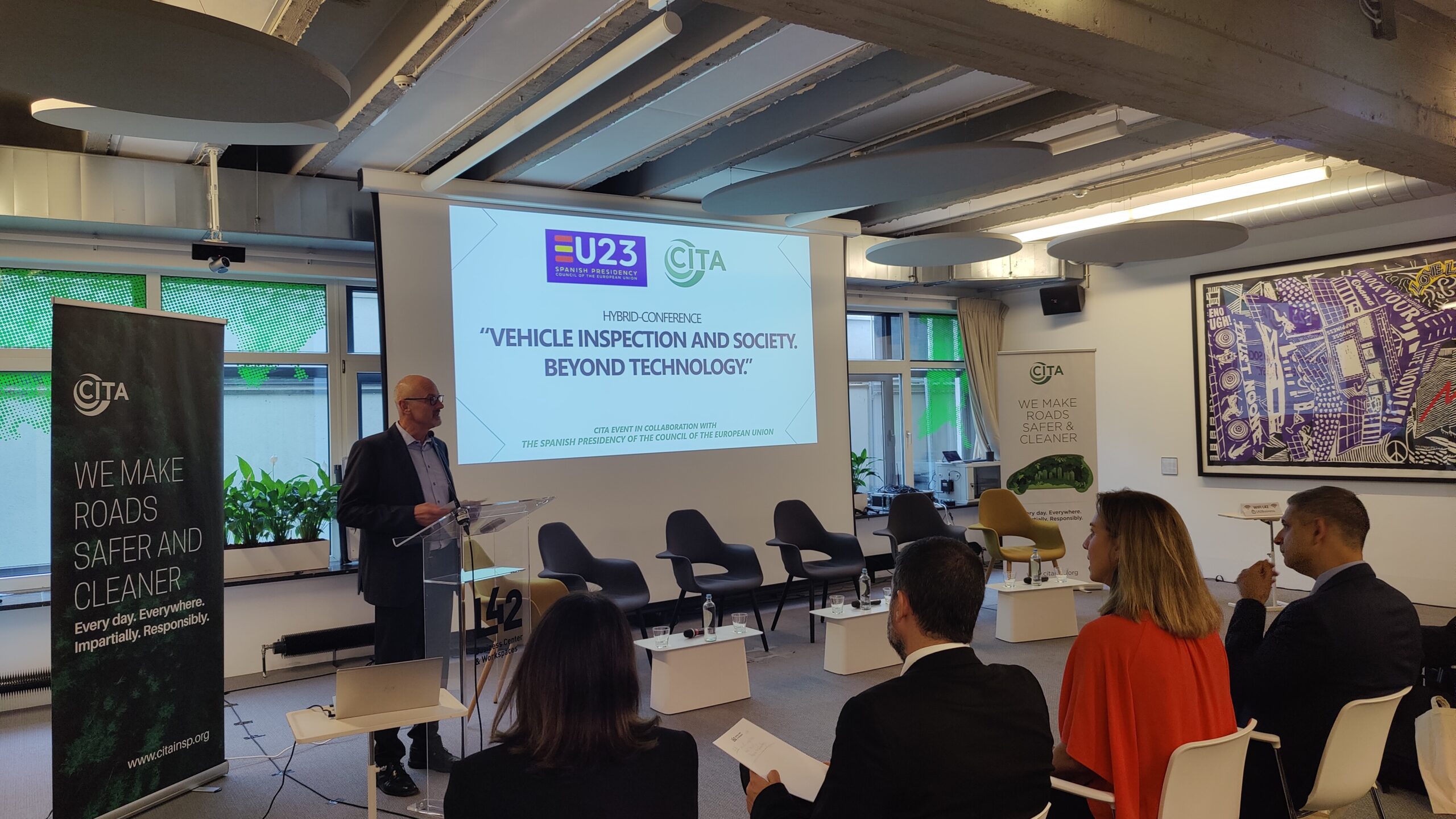
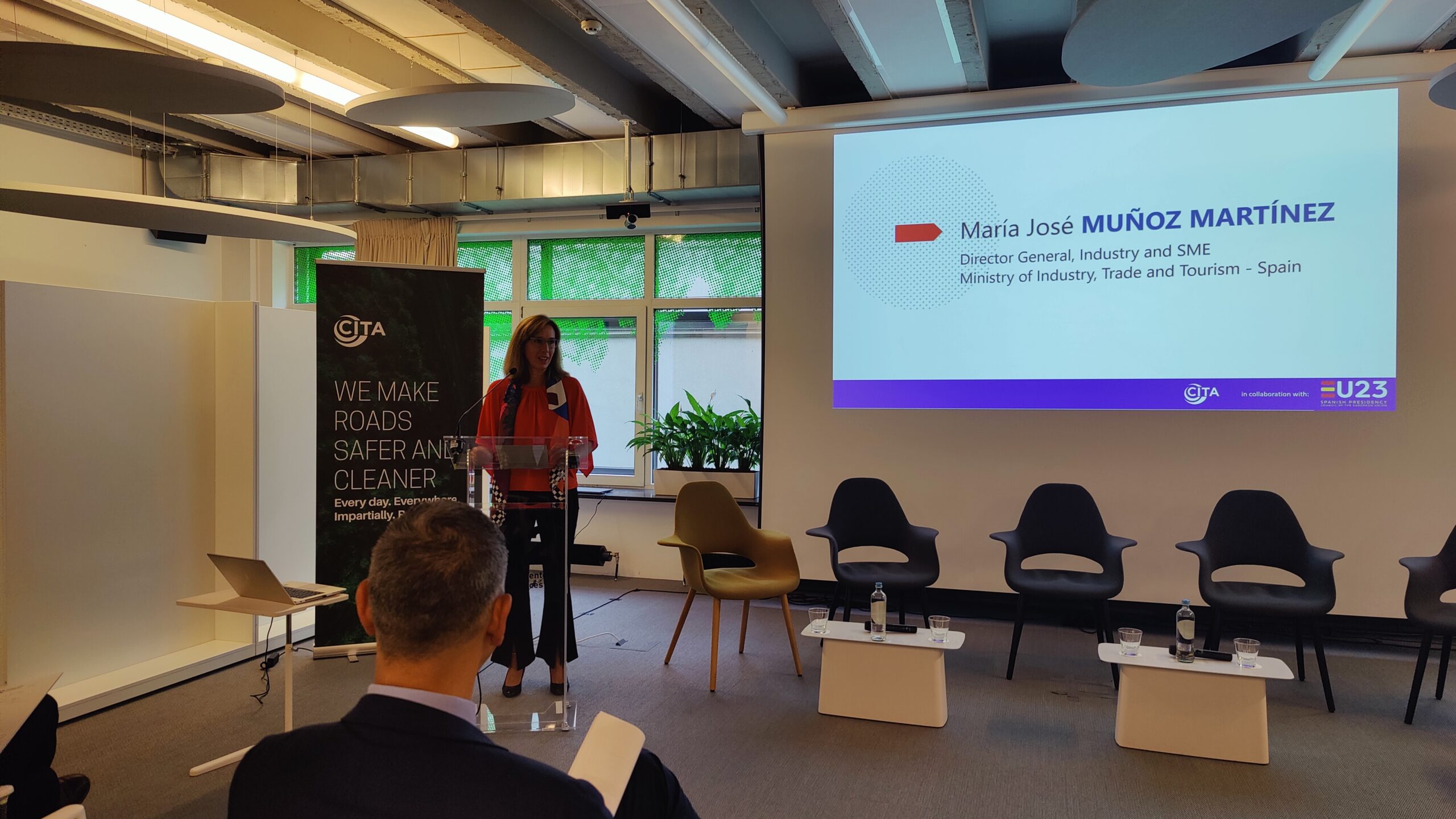
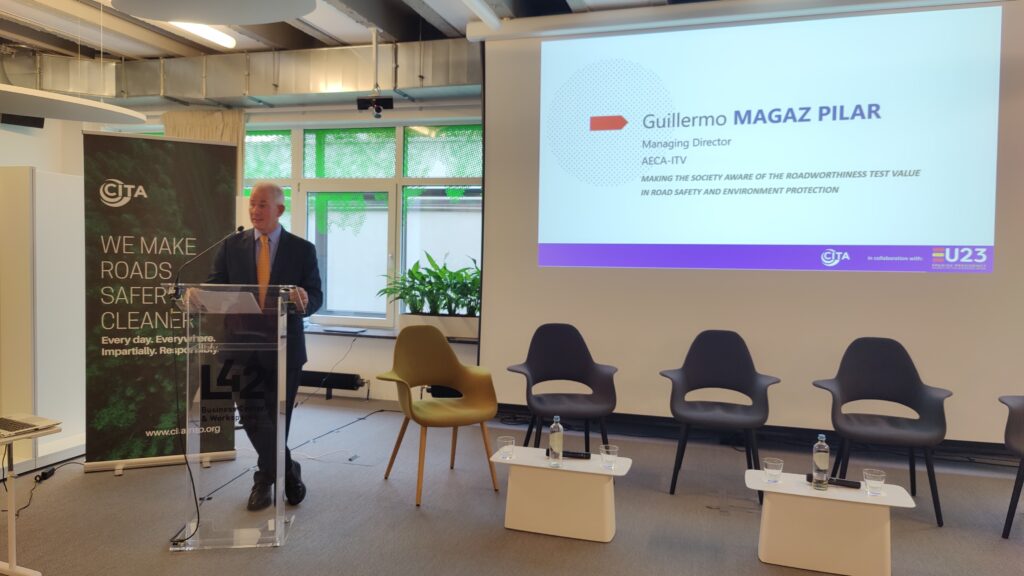
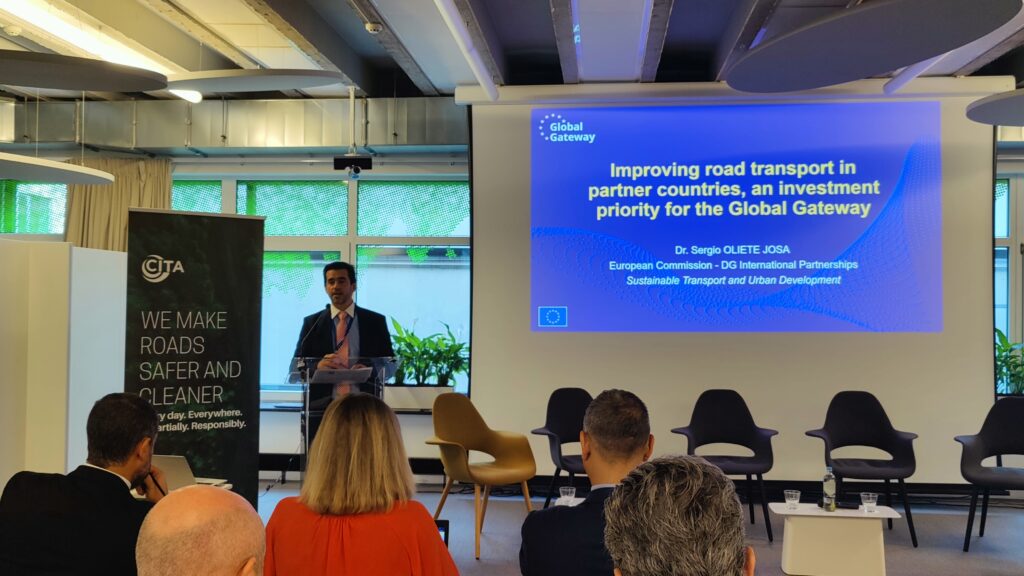

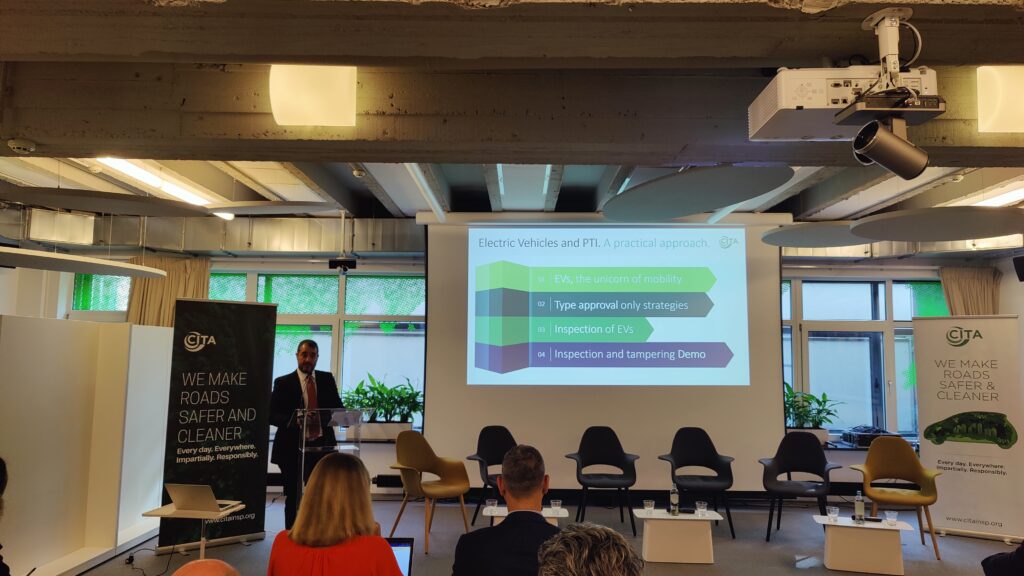
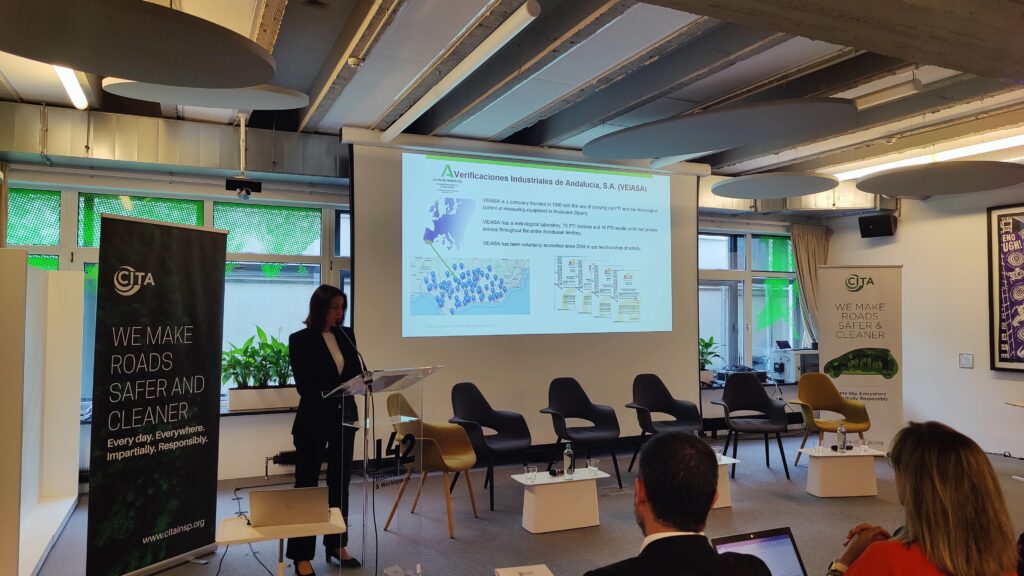
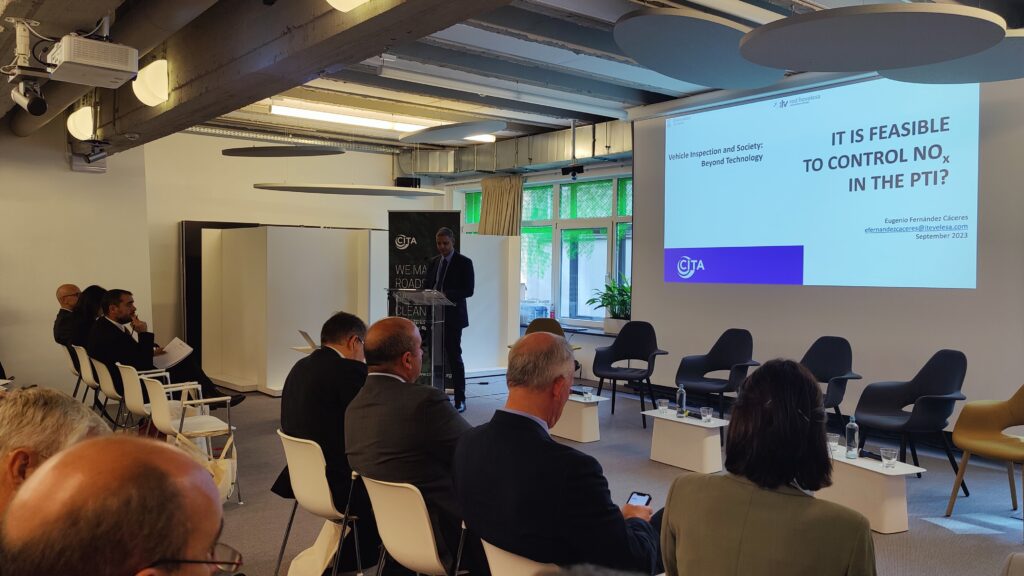
Key takeaways from the Conference were safety, environmental responsibility, economic implications, and global standards. The primary objective remains the safety of citizens. As vehicles continue to integrate cutting-edge technologies, the process of vehicle inspection has become ever more complex. Efficient vehicle inspection ensures fewer road mishaps, and plays a pivotal role in environmental conservation, ensuring vehicles emit within permissible limits. With a growing need for harmonized vehicle inspection standards across countries to facilitate international transportation, a well-structured inspection mechanism indirectly boosts the economy by ensuring efficient vehicle operations.
The “Vehicle Inspection and Society: Beyond Technology” conference reiterated the importance of seeing vehicle inspections not as an isolated technical procedure but as a process deeply ingrained in societal, economic, and environmental matrices.
The joint effort by CITA and the Spanish Presidency of the Council of the EU marks a commendable step towards a holistic approach to vehicle inspections, emphasizing its ripple effects across various sectors of society. The Brussels conference not only enriched the discourse around vehicle inspection and its societal ramifications but also paved the way for global collaborations. By sharing knowledge, research, and best practices, stakeholders can drive forward an agenda that prioritizes road safety and environmental health, all while leveraging cutting-edge technology.

